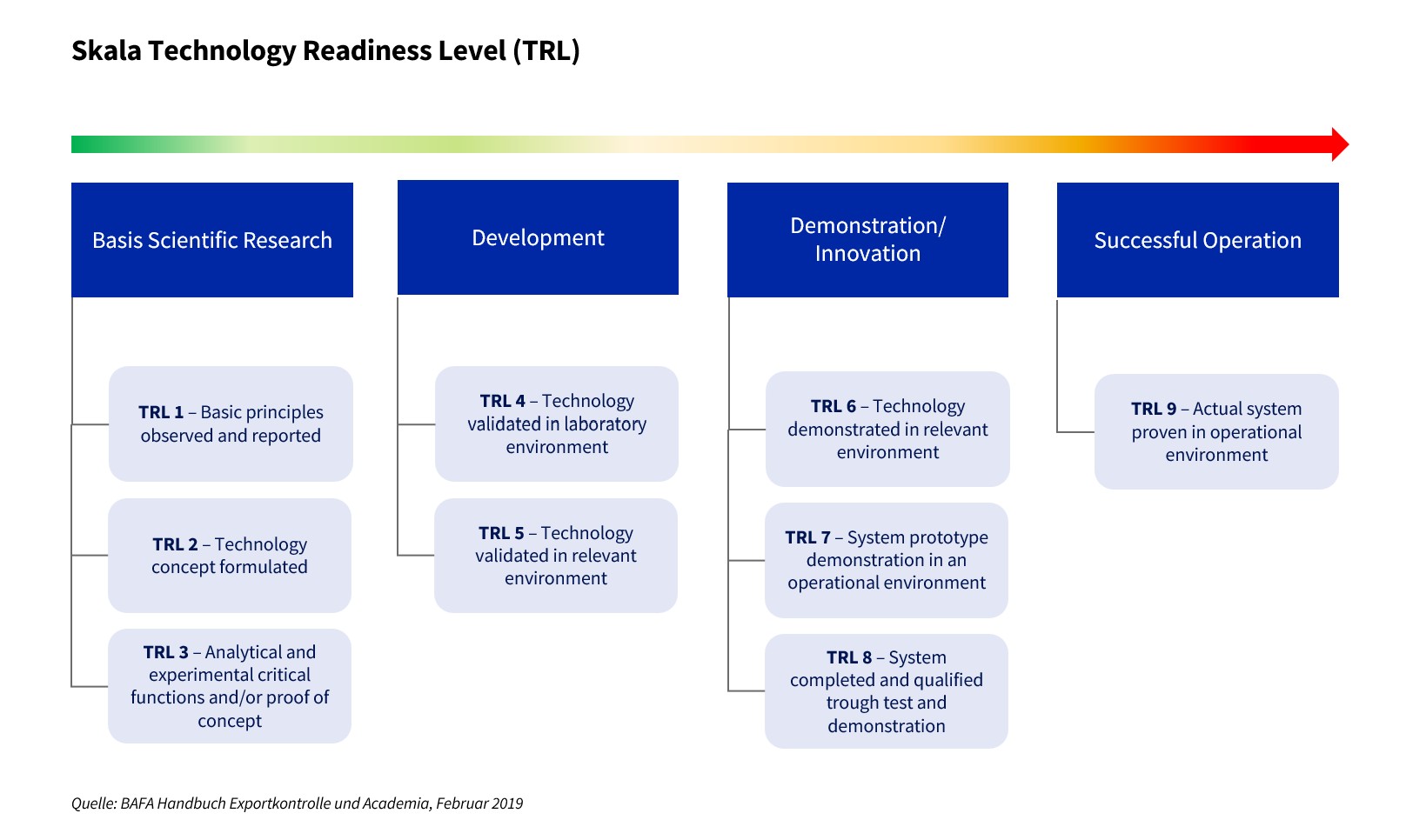Compliance with Sanctions, Embargoes and Export Control Regulations
There is an obligation to check whether activities are prohibited or subject to authorization requirements under foreign trade law.
Basic Test Steps
To ensure compliance with sanctions, embargoes and export control regulations, the activity must be checked against the following 5 W key questions:
- WHAT is to be exported? Goods, technology or software → Examination of the export goods based on the legal requirements (goods lists)
- WHERE do the goods come from? Country of origin of the goods → e.g. US or Russian
- WHERE should the goods be exported to? The final destination country of the export – review the destination country for embargoes and sanctions
- WHO should receive the goods? The end user must be known → Check whether the parties involved are included in sanctions lists
- WHAT are the goods to be used for? The end use of the goods in the country of destination
Assessment
Answering the 5 W questions enables an assessment of whether, in addition to Swiss export control laws, US or other export control laws also need to be considered and whether an official export license is required. Furthermore, it can be assessed whether sanctions (country-specific or person-specific) exist that prohibit the exchange of knowledge, the cross-border delivery of goods and software or the provision of a service.
Only once the export control check has taken place and any necessary authorization from the competent authority has been obtained may an exchange of knowledge, a cross-border delivery of goods and software, or the provision of a service take place.
The Classification of Goods
The export control number and the origin of the goods are the basic elements of the goods classification. The export control number is determined by means of goods control lists. The Swiss goods control lists are administered and published by SECO (see Annexes to the Goods Control Ordinance - only available in German, French and Italian)
The "Catch-All" Clause
Art. 3 (4) of the Swiss Goods Control Ordinance provides for a "catch-all" rule. This applies to non-listed goods which the exporter knows or has reason to believe may be used for the development, manufacture, use, transfer or deployment of NBC weapons. The purpose of this regulation is to prevent the export of goods that are suspected of being used in connection with weapons of mass destruction.
Exceptions
Basic scientific research (as opposed to applied research) as well as information on patent applications and research results that have already been published and made available to the public without restriction are not subject to export control checks.
The scale for "Technology Readiness Level" can be used to determine whether applied research (subject to export control checks) and not basic research (not subject to export control checks) is involved.
Please note the following:
- Basic research is purely knowledge-oriented or knowledge-driven research and is not subject to export controls . Teaching, for example, is to be regarded as basic research if it only involves the transfer of generally accessible information.
- The higher a technology is classified in the development stage, the more attention must be paid to export controls.
- Software and software development do not count as basic research.
- Research financed with funds from industry is generally not basic scientific research.
- Based on the Technology Readiness Level (TRL) scale, basic research is typically classified as TRL 1 to TRL 3.
- From TRL 4 onwards, it is typically applied research.
1 Basic scientific research is "experimental or theoretical work undertaken primarily to obtain new knowledge about fundamental principles of phenomena or facts that are not primarily directed towards a specific practical goal or purpose" (Annex 1 GKV).
2 Research results, technologies or software that have already been published and are available to the public without restriction are not subject to an export control check (copyright restrictions do not overrride general accessibility).
